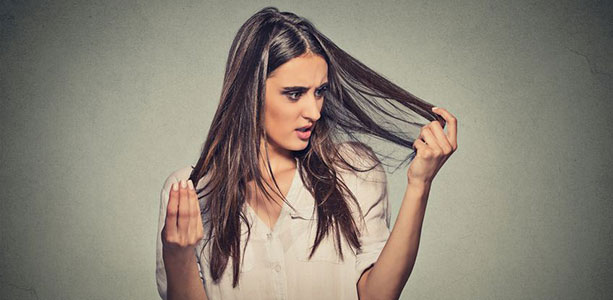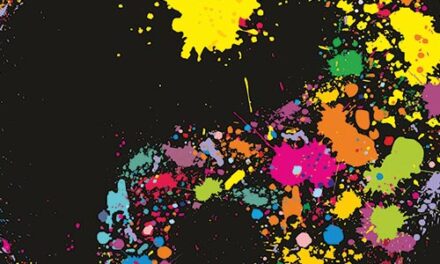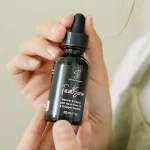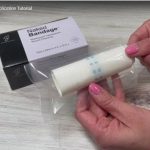You can’t open a newspaper or magazine without seeing advertisements for hair loss solutions for men, but very few options are offered to women who are losing their hair. Over two-thirds of women suffer hair loss, and hair loss can be quite extreme—from thinning to bald patches. Thankfully, few women go totally bald like men do, but there is nothing more distressing than watching your lovely locks fall out in abundance. Topical solutions for women rarely reverse hair loss. And the drugs that are available have been predominantly researched in men and do not address the underlying reasons for hair loss in women.
The three main reasons for hair loss in woman are: low iron, low thyroid and not enough minerals in the diet.
Low Iron and Hair Loss in Women
One of the least known causes of hair loss is low iron. You do not have to be anemic to lose your hair. Your doctor may advise you that your iron levels are normal, but we know that low normal levels of iron will cause huge hair loss. We see this in women after childbirth and in women during the perimenopausal years when heavy periods may occur. Simply being a woman of childbearing age automatically puts you at risk of low iron. Up to 60 percent of women have low iron and it is often undiagnosed. Due to higher iron requirements as a result of menstruation, women need 20 milligrams of elemental iron daily yet most of us are only getting 8 mg per day from our diet. Now that we are not eating as much red meat, even postmenopausal women and seniors are suffering from low iron.
Other common symptoms of low iron:
- No energy/fatigue
- Pale skin
- Breathlessness upon even minor exertion
- Dark under-eye circles
- Dizziness
- Thin, brittle or peeling nails
- Restless legs
- Cold hands and feet
Don’t Believe a Normal Iron Test
If your doctor tells you your iron is normal, ask for the test results. There are two iron blood tests: hemoglobin and ferritin. For hemoglobin, the test range suggested as normal by your doctor is 117–160 g/L for women. Yet we know that a hemoglobin below 140 g/L will cause significant hair loss. Ferritin, which is your iron storage, has a suggested test range of 15–160 ug/L; but to prevent hair loss and ensure thick hair, your reading should be above 40 ug/L.
Hair follicles contain ferritin. When ferritin stores decline in the hair follicle, it affects the ability of the hair to grow causing non-pigmented fine hairs to develop. These hairs are often mistaken for androgenic alopecia. Low ferritin also causes the hair to change structure become dry, not hold the curl or color well and break easily. Hair loss can be gradual, a general thinning out over the years, or it can be sudden and startling.
Iron supplements represent another challenge because you will want an iron that does not constipate or cause digestive distress but is effective and fast acting. When choosing iron, you will want a liquid iron. And, better yet, choose one in a liposomal technology. A liposomal iron is one where the iron is trapped in a protective bubble that guides it through the acidic digestive tract to the intestine, where it is absorbed effectively and swiftly. Tests conducted on liposomal iron have found that, two hours after ingestion, its absorption is five times greater than ferrous fumarate, the standard doctor-prescribed iron in tablets. And after 12 hours, the total absorption of liposomal iron was double that of all other forms of iron tested. You will need 1–3 teaspoons of liquid liposomal iron (10–30 mg of elemental iron) for fast results. Most women notice hair regrowth in as little as six weeks with this type of iron.
Low Thyroid Affects Up to 23 Percent of Women
Like low iron, hypothyroid or low thyroid hormone is an undiagnosed epidemic in Canada. Twenty-three percent of women are currently taking thyroid medication and up to 30 percent of women may also have sub-clinical or mild hypothyroidism whereby their thyroid-stimulating hormone (TSH) is within the “normal” range of 0.5–5.5 IU/mL yet they still experience symptoms. Thinning hair, hair loss and loss of eyebrow hair are common symptoms of low thyroid. A deficiency in these hormones may also result in some of the following symptoms:
- Constipation
- Dry skin
- Weight gain or difficulty losing weight
- Sensitivity to cold
- Menstrual problems/heavy periods
- Fatigue or lethargy
- Headaches
It is important that you ask your doctor what your TSH test result number is because although it may be “normal,” research has shown that if it is greater than 2.0 IU/mL, chances are it is low thyroid that is contributing to your hair loss. There are many things you can do to support your thyroid. Read my free online book, An A-Z Woman’s Guide to Vibrant Health under the Low Thyroid section at www.hormonehelp.com. In addition, for those who are either on thyroid medication or who have low thyroid but are not on thyroid hormone, there are key nutrients that can help support thyroid function. These include potassium iodide, tyrosine, ashwagandha, gugguls and pantothenic acid. Look for a combination formula and take two capsules with breakfast. If you are on thyroid medication, take your medication first thing on an empty stomach and then take this supplement at breakfast. Once the underlying low thyroid is resolved and the TSH drops below 2, hair starts to grow back in six to eight weeks.
Mind Your Minerals
It is a rare person who eats the recommended seven to 10 half-cup servings of fruits and vegetables on a daily basis. Most of us eat only two to three servings a day and, on top of this, the modern lifestyle is rampant with “nutrient robbers”— e.g. stress, medications, the birth control pill, smoking, alcohol— that further deplete our nutritional stores. As a result, deficiencies
in the key nutrients required for healthy hair are rampant. Zinc, silicon and selenium, for example, are critical to hair growth yet most people do not get enough.
Everybody should be on a multivitamin with minerals to prevent the nutritional deficiencies associated with not only hair loss but also chronic disease. A good quality multivitamin with minerals is a nutritional insurance policy and should contain 15 mg each of zinc and silicon and 100 mcg of plant-based selenomethionine. For women who are exhausted at the thought of yet another capsule, look for a multivitamin with minerals in powdered packets. Mix it into your morning protein smoothie, or shake well with water or juice at mealtime.
Start today with liquid iron, a thyroid-support formula and a great multivitamin with minerals and your hair will start to regain its youthful bounty. It is not normal to look down at the bottom of the tub and see nothing but hair swirling around the drain. Investigate these three common causes and your plumber will be as thrilled as you are with your thicker, fuller hair.











